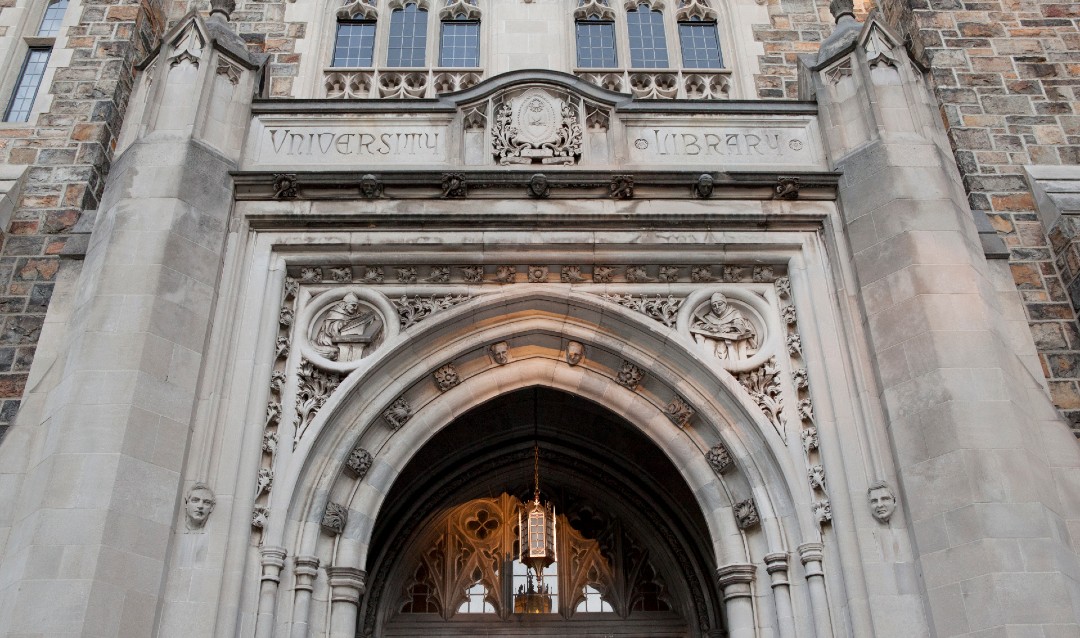Dear Lehigh Students,
This has certainly been a tumultuous several weeks: Spring Break, news about Lehigh’s transition to a remote learning environment, a move away from campus for the majority of students, and the cancellation of many of the events we look forward to each spring. Each of you and your families have had to adapt to a quickly changing situation, and the disruption and subsequent adjustment, I’m sure, has been challenging. It has been for all of us.
The COVID-19 pandemic has affected each member of the Lehigh community in different ways, and every one of us has had to rise to the occasion. Some students are adjusting to learning at home instead of in campus classrooms; others are unable to return to their homes and instead remain on campus, living and learning—still at a distance—in residence halls. Some faculty and students—graduate and undergraduate—have had to adjust their research; others have had to stop completely the work that they’ve been conducting for, in many cases, several years. Many faculty and TAs have also had to very quickly redesign their courses for an online environment. For some, this has been the ultimate test of flexibility and ingenuity. Staff have had to figure out new and creative ways to provide support to students, faculty and each other. All the while, our community members have been working to ensure the health and safety of themselves and their family members. At different times, we’ve all experienced stress, disappointment and worry about the unknown. This disruption may look different for each of us, but it’s important to know we’re all experiencing it.
The Student Senate on Wednesday hosted a Q&A with me and Pat Johnson, vice president for finance and administration, and Jennifer Jensen, deputy provost for academic affairs. (President Simon had to be on another call and wasn’t able to participate.) I encourage you to watch the recording of the Q&A. I’m grateful to Julia Pardee and the Student Senate for pulling that together, as it gave us an opportunity to hear what you have on your minds, clarify some things and hopefully ease some concerns.
Among the questions and concerns students raised were several concerning exams, exam integrity and the steps faculty might take to ensure exam integrity in a remote teaching and learning environment. The issue of exam integrity is not unique to our current situation, as it existed when we had on-campus face-to-face exams. It is now even more challenging, as faculty have little control over the environment in which you take their exams. Many of you indicated in the Q&A that you want a “level playing field,” so that you can feel confident that your honest exam-taking isn’t undermined by a few other students who might not be honest. Like many of the issues we face today, I think we can tackle this one together.
I will raise this issue with faculty and encourage them to work with you, their students, to identify effective and minimally intrusive ways to ensure the administration of exams that fairly evaluate the learning of all students. As I said in the Q&A, students have a major responsibility here as well. I will challenge faculty to work to ensure that “level playing field,” and I encourage you to challenge yourself and your fellow students to also help make that happen.
In ancient times, when I was an undergrad, my institution had an “Honor Code” that each of us signed at the end of an exam. This pledge of academic integrity allowed exams to be unproctored. Part of the responsibility of being a member of that university community was not only to “neither give nor receive aid on this exam,” but also to help your fellow students understand and adhere to that code. We may all have been naïve—who’s to say that everyone remained honest?—but as far as I could see, it worked. We had the advantage of being in a field of engineering where we might need to certify the accuracy of our work in situations where lives depended on that accuracy, so practicing integrity even as we were learning fundamental s seemed a very natural thing. Actually, that statement is probably true for most of you as well.
That was a long time ago, and I don’t think we are in a position to implement something like that, but I like the sense of shared responsibility for integrity in your work, and I encourage it. Your faculty can and should do their best to be sure evaluations of your learning are fair and accurately represent your learning; you can and should do your best to also make the evaluation of your learning accurate and honest. I am also pretty certain that today, practicing integrity, even as college students, will be important in your success beyond Lehigh. I can’t think of any professional field in which dishonesty is accepted or rewarded.
I appreciate your flexibility and positivity as we all adapt to a new type of community. I know you miss many things about live interaction with other students, faculty and staff. We all miss the live interaction with you, too. Even in these different conditions, I hope you are able to stay connected to other members of the Lehigh community. Don’t hesitate to reach out to faculty or staff, whether in your academic program or in the Dean of Students office or elsewhere on campus. Those folks are all working—even if not on campus—and are available to support you. I know they’d love to hear from you.
I hope you and your families are healthy and safe.
Pat Farrell


